Best AI tools for< Federated Learning >
8 - AI tool Sites
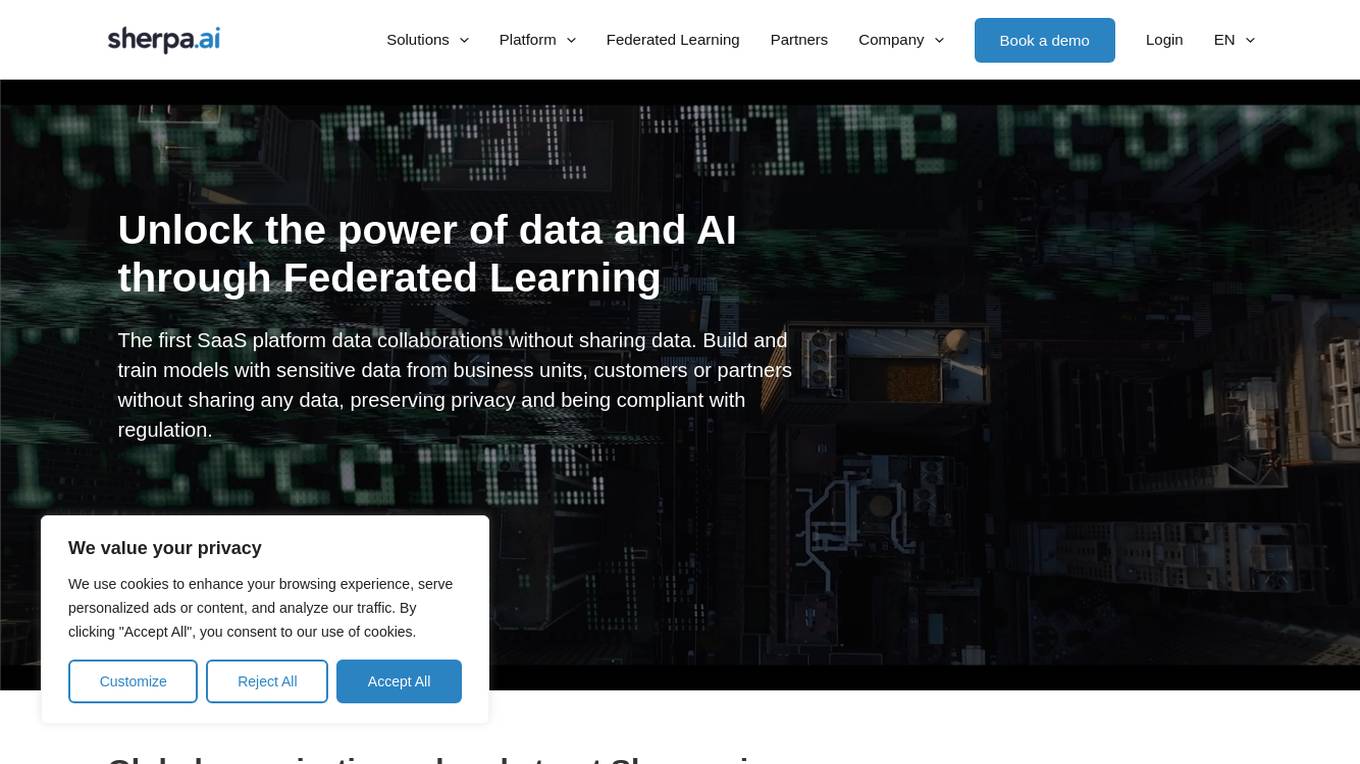
Sherpa.ai
Sherpa.ai is a SaaS platform that enables data collaborations without sharing data. It allows businesses to build and train models with sensitive data from different parties, without compromising privacy or regulatory compliance. Sherpa.ai's Federated Learning platform is used in various industries, including healthcare, financial services, and manufacturing, to improve AI models, accelerate research, and optimize operations.
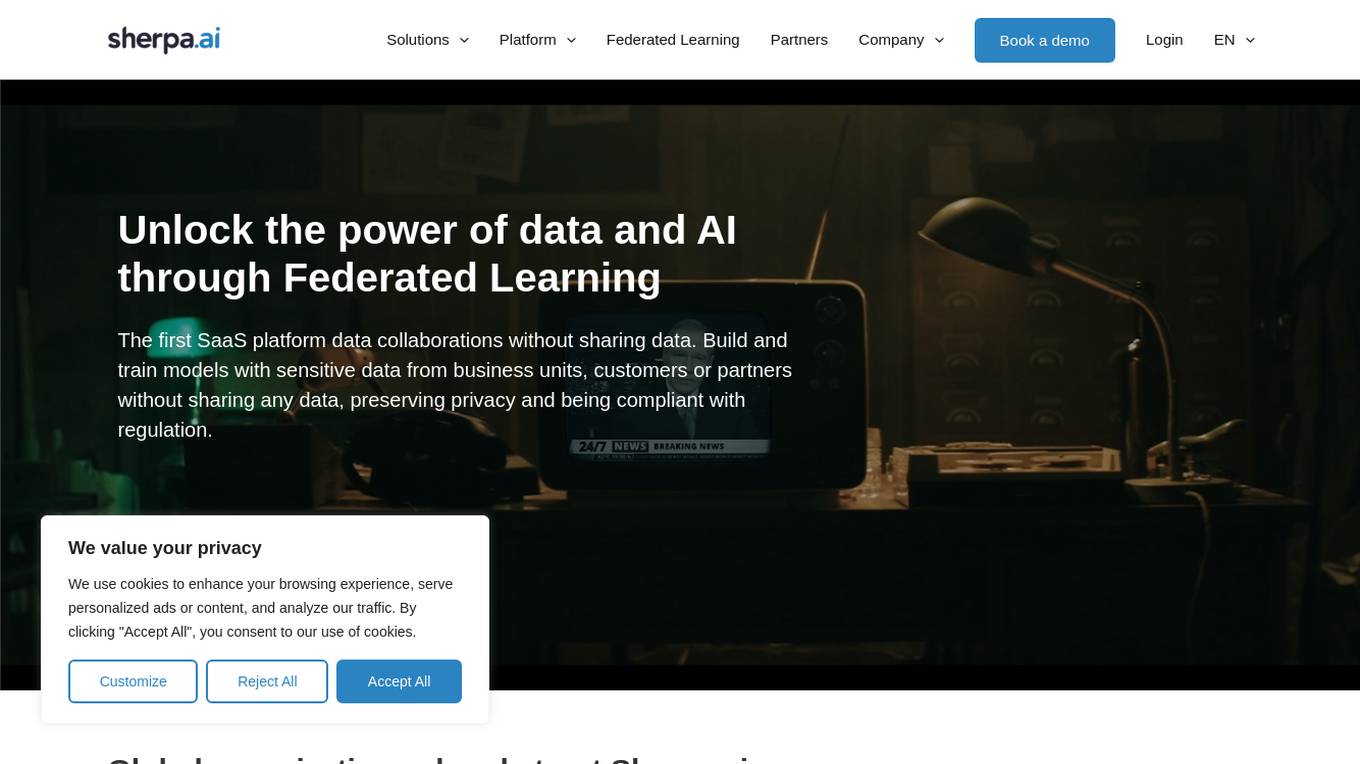
Sherpa.ai
Sherpa.ai is a Federated Learning Platform that enables data collaborations without sharing data. It allows organizations to build and train models with sensitive data from various sources while preserving privacy and complying with regulations. The platform offers enterprise-grade privacy-compliant solutions for improving AI models and fostering collaborations in a secure manner. Sherpa.ai is trusted by global organizations to maximize the value of data and AI, improve results, and ensure regulatory compliance.
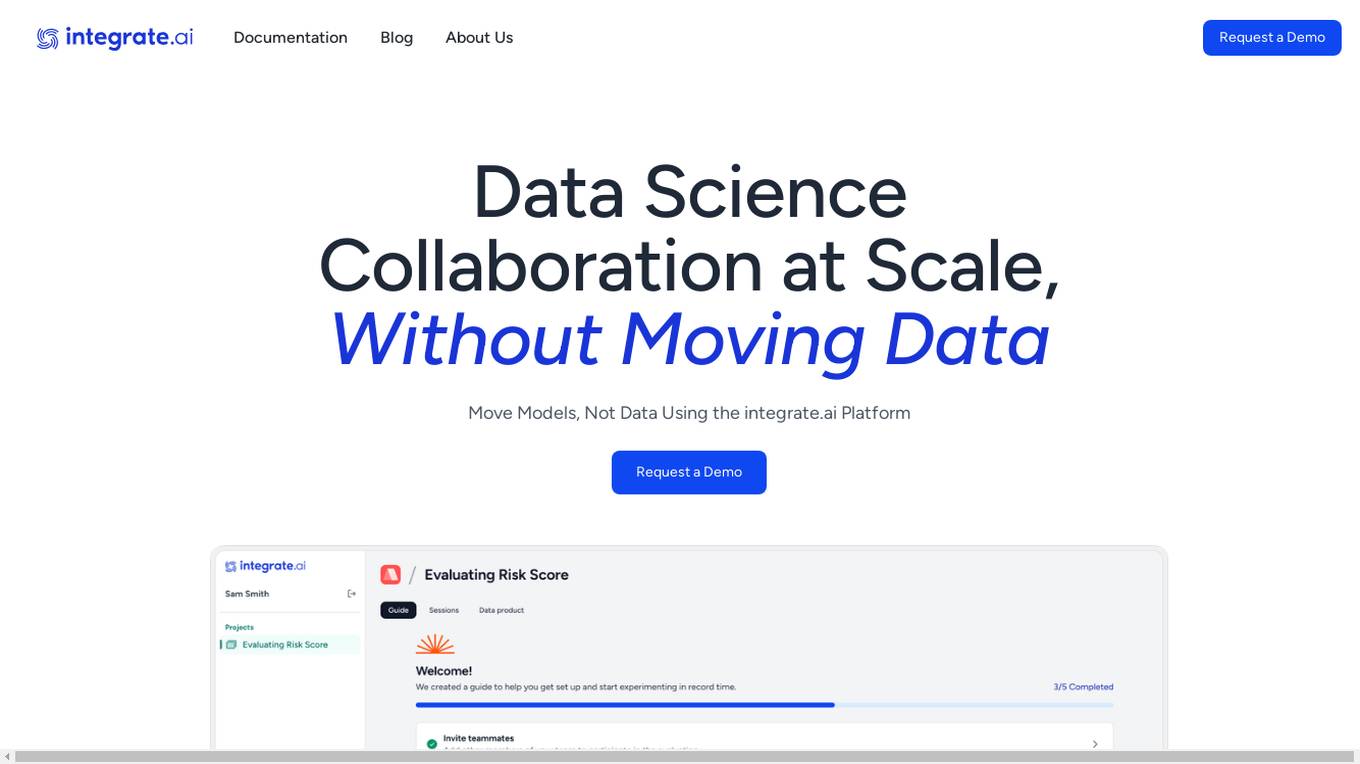
integrate.ai
integrate.ai is a platform that enables data and analytics providers to collaborate easily with enterprise data science teams without moving data. Powered by federated learning technology, the platform allows for efficient proof of concepts, data experimentation, infrastructure agnostic evaluations, collaborative data evaluations, and data governance controls. It supports various data science jobs such as match rate analysis, exploratory data analysis, correlation analysis, model performance analysis, feature importance & data influence, and model validation. The platform integrates with popular data science tools like Azure, Jupyter, Databricks, AWS, GCP, Snowflake, Pandas, PyTorch, MLflow, and scikit-learn.
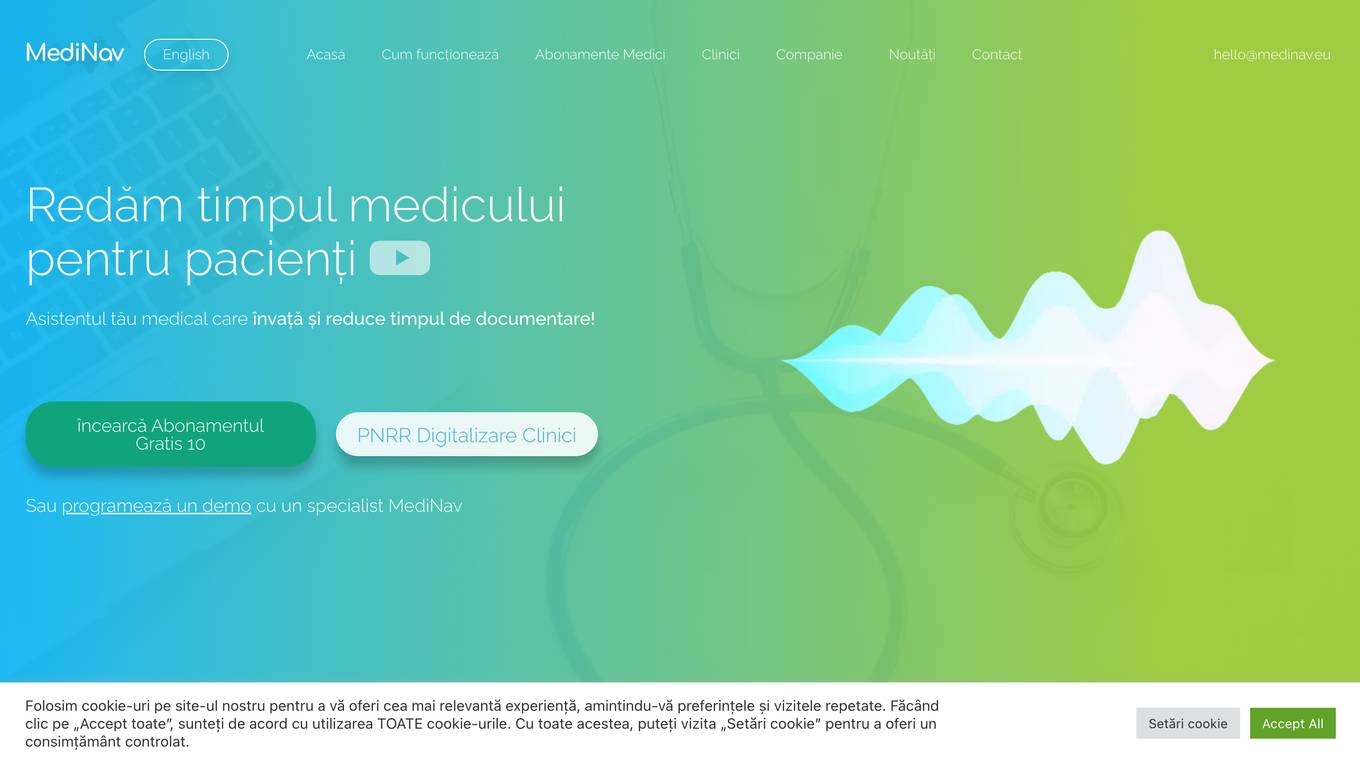
MediNav
MediNav is an AI-powered medical assistant that learns and reduces documentation time for healthcare professionals. It is not just a medical dictation software but an assistant based on a complex algorithm that retains, notes, extracts medical information, and continuously learns. By using advanced speech recognition technology combined with natural language processing, MediNav offers efficient and intuitive assistance to healthcare providers, resulting in reduced costs, more time for patient care, and faster delivery of imaging results. It is primarily used in Romanian and is expanding to include other European languages like German, Spanish, and Polish.

Mozilla.ai Lumigator Blueprints
Mozilla.ai Lumigator Blueprints is a developer-first hub for open-source AI workflows. It provides a platform for exploring and customizing AI blueprints, such as building timeline algorithms, fine-tuning models, and mapping features using computer vision. The site aims to empower users to create personalized AI solutions tailored to their specific needs and preferences.

Netomi
Netomi is an AI-powered conversational AI platform that revolutionizes customer experience by providing proactive and automated customer care across various channels. It offers industry-leading enterprise-ready AI solutions, including sanctioned generative AI, goal-driven AI, and federated knowledge access. Netomi enables businesses to quickly respond to customer needs, increase resolution rates, and reduce support costs. The platform integrates seamlessly with existing systems, providing real-time omnichannel intelligence and security-first architecture for data privacy and security.
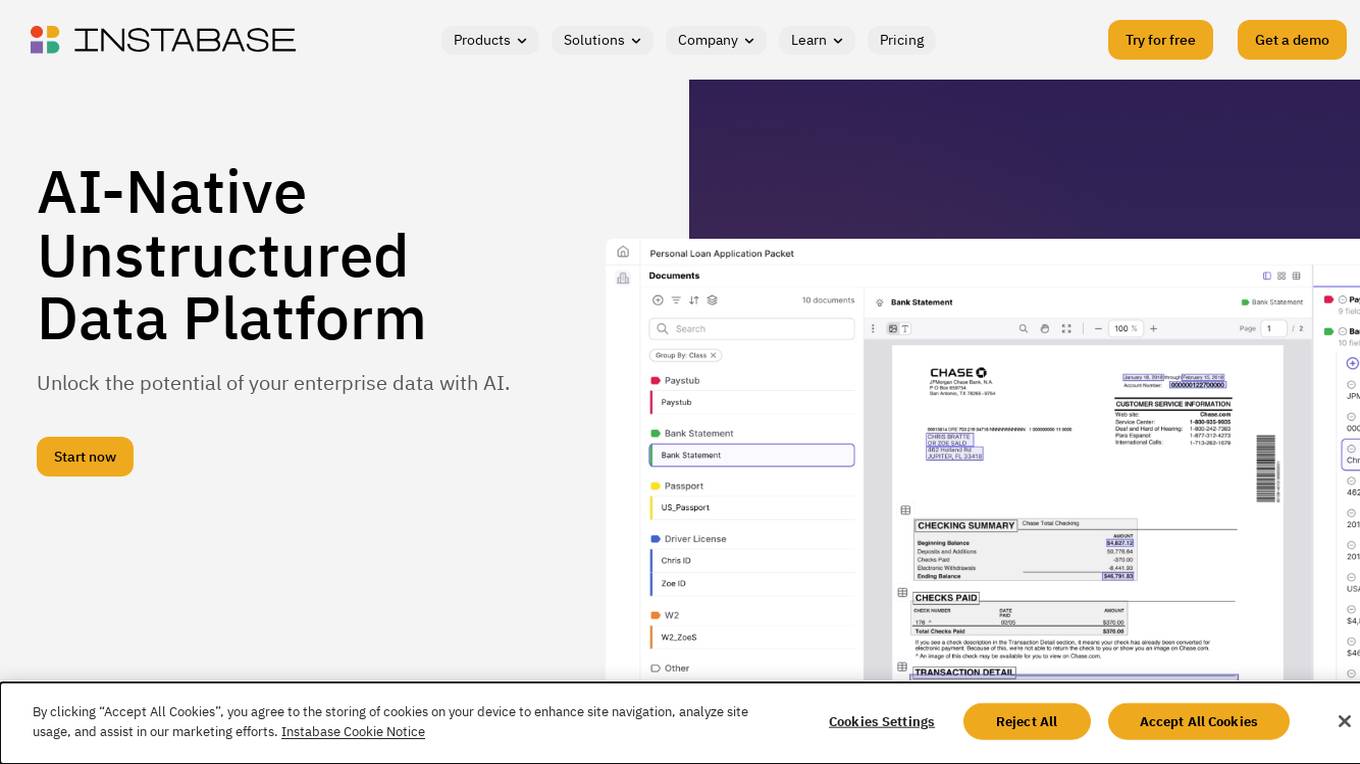
Instabase
Instabase is an AI-native unstructured data platform that helps businesses transform their processes stuck in unstructured data. It offers solutions for automating document processing workflows, analyzing data from any document or knowledge base, and surfacing insights across all company data. Instabase leverages generative AI, agentic reasoning, and federated processing to enable users to automate processes, find information, and make smarter decisions faster. The platform prioritizes AI privacy, security, and trust, providing users with complete control over their data and enterprise-grade security measures. Instabase has received several awards and recognitions for its innovative approach to leveraging AI for business solutions.

Federato
Federato is an AI-powered platform that integrates Google Cloud's AI capabilities to provide new AI underwriting solutions for the insurance industry. It aims to revolutionize underwriting processes by leveraging AI technology to enhance risk assessment, portfolio management, and decision-making. Federato's RiskOps platform empowers underwriters with powerful insights, real-time risk selection guidance, and unified underwriting workflows, enabling them to make more informed decisions and improve operational efficiency.
1 - Open Source AI Tools
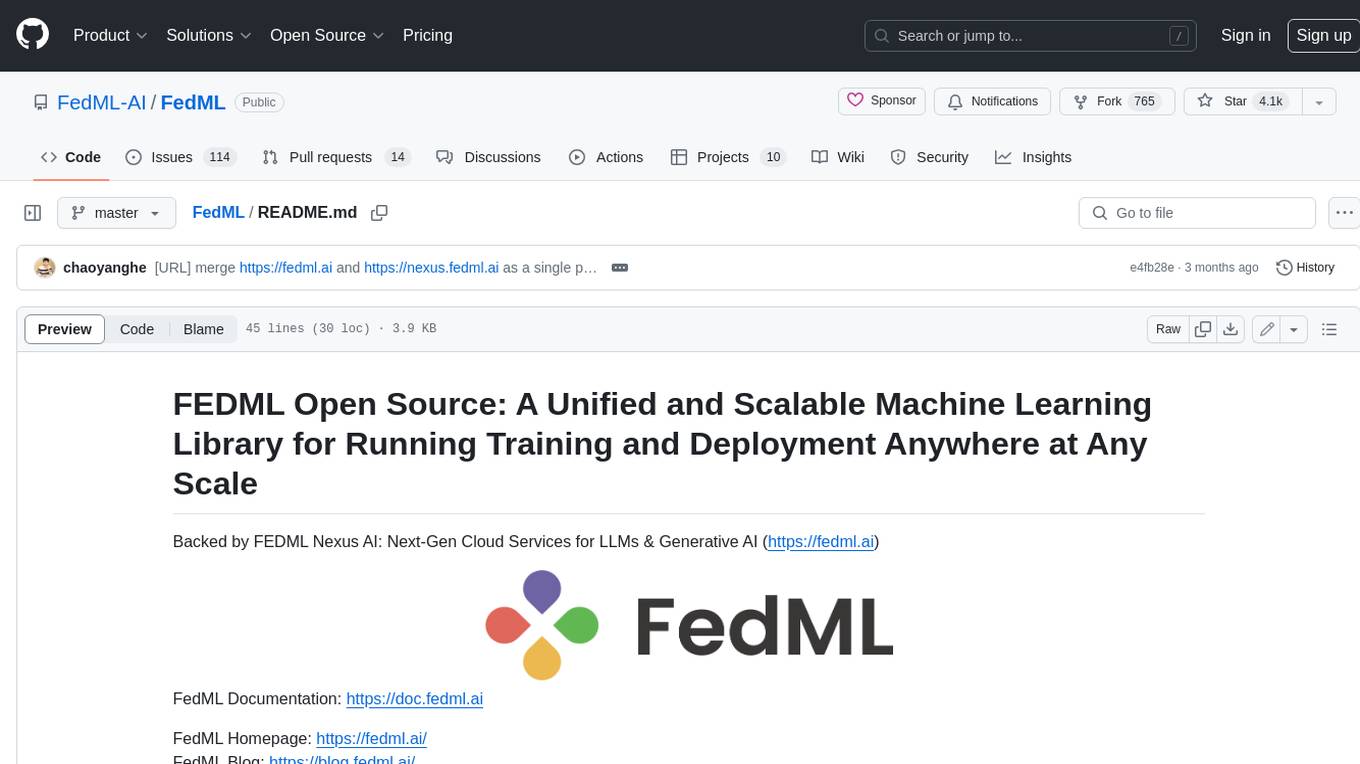
FedML
FedML is a unified and scalable machine learning library for running training and deployment anywhere at any scale. It is highly integrated with FEDML Nexus AI, a next-gen cloud service for LLMs & Generative AI. FEDML Nexus AI provides holistic support of three interconnected AI infrastructure layers: user-friendly MLOps, a well-managed scheduler, and high-performance ML libraries for running any AI jobs across GPU Clouds.